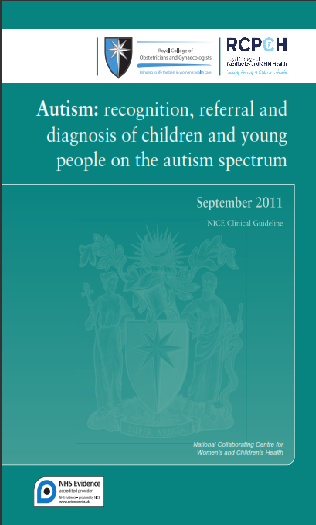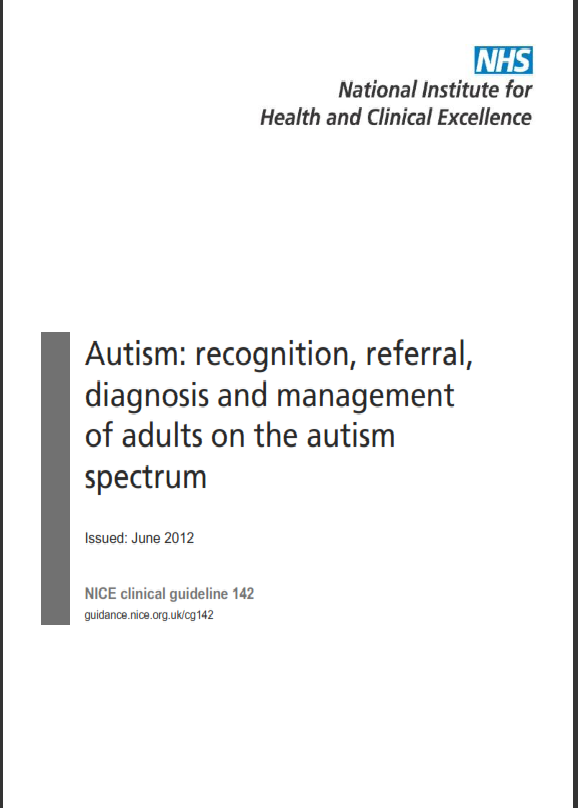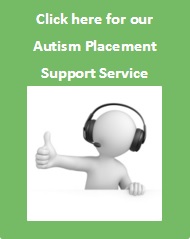Are you wondering about a diagnosis for autism? If you feel that you or a family member might have an autistic spectrum condition it is important that you consider getting a diagnosis. For children, a diagnosis could mean early intervention support which has been shown
to make a positive difference. For adults, a diagnosis  can be a positive experience, making sense of difficulties they have been experiencing especially in social communication, rigid and repetitive behaviour and sensory differences.
can be a positive experience, making sense of difficulties they have been experiencing especially in social communication, rigid and repetitive behaviour and sensory differences.
Most diagnoses are carried out as a result of a referral from a GP. Therefore, your first port of call is to ask your GP for a referral. It will help your GP if you go prepared. Click here for some general information about autistic spectrum conditions and here if you would like to know more about Asperger’s Syndrome.
The appointment with the GP should be for this request alone and not to discuss other health issues as well.
It might help the GP if you know where your local diagnosticians are based. Click here to search for a diagnostician in your area, or contact us by phone or email if you need further assistance.
If you are having difficulties in getting a diagnosis through your GP, consider contacting your Local Authority to find out who is in charge of referrals to the local autism team and contact them directly.
Some diagnosticians take private referrals so it is always best to contact them to find out.
Getting the diagnosis for autism
Most diagnoses are carried out by a psychiatrist or a psychologist. A diagnosis can take up to a full day. It helps the diagnostician if they are told about the history of experiences. Click here to read more about autism and autistic spectrum conditions. Ask yourself if there are experiences which fit in with some of the characteristics. Once you have had the diagnosis, you should be given a written report which you can then use to help you access the support you need.
Broaching the subject of diagnosis with an adult you suspect might have autism.
If you think an adult you know might be on the autistic spectrum and are struggling with how to broach the subject you might find this discussion thread helpful click here.
Clinical Guidelines
NICE (National Institute for Clinical Excellence) has published guidelines for diagnosis for both children and adults. It would be worth mentioning these guidelines to your GP when you go to ask for a diagnosis. A summary of diagnostic criteria are below.
Guidelines for diagnosis for autism in children and young people
In September 2011 NICE (National Institute for Health and Clinical Excellence) published guidelines for a diagnostic pathway for children and young people suspected of having autism. These guidelines stipulate that:
 Each strategy group should have a lead professional responsible for the local autism pathway for recognition, referral and diagnosis of children and young people
Each strategy group should have a lead professional responsible for the local autism pathway for recognition, referral and diagnosis of children and young people
- Each locality should have an autism multi-agency strategy group
- The strategy group should set up a multi-disciplinary autism team to include a paediatrician and/or child and adolescent psychiatrist, a speech and language therapist, a clinical and/or educational psychologist
- There should be a single point of referral to the autism team
A case co-ordinator should be identified within each autism team for each child or young person who is to have an autism diagnostic assessment.
Diagnostic assessments for children and young people:
- Diagnosis is usually for children older than 3 years; however, if there is regression in language or social skills then it is possible to get a diagnosis earlier.
- A diagnostic assessment should be carried out within 3 months of the referral to the autism team
- If the child or young person has a diagnosis of autism, they should be offered a follow-up appointment with an appropriate member of the autism team within 6 weeks of the end of the autism assessment for further discussion
Clinical guidelines for diagnosis for autism in adults
 The Autism Act, 2009, and subsequent Autism Strategy: Fulfilling and Rewarding Lives, 2010, indicate that clear and consistent pathways to diagnosis have to be developed in each area. In June 2012, NICE published guidelines entitled Autism: recognition, referral, diagnosis and management of adults on the autism spectrum hyperlink.
The Autism Act, 2009, and subsequent Autism Strategy: Fulfilling and Rewarding Lives, 2010, indicate that clear and consistent pathways to diagnosis have to be developed in each area. In June 2012, NICE published guidelines entitled Autism: recognition, referral, diagnosis and management of adults on the autism spectrum hyperlink.
These guidelines stipulate that an assessment of possible autism should be carried out if the person has “one or more of the following:
- Persistent difficulties in social interaction
- Persistent difficulties in social communication
- Stereotypic (rigid and repetitive) behaviours, resistance to change or restricted interests, and
One or more of the following:
- Problems in obtaining or sustaining employment or education
- Difficulties in initiating or sustaining social relationships
- Previous or current contact with mental health or learning disability services
- A history of a neurodevelopmental condition (including learning disabilities and attention deficit disorder) or mental disorder” (1.2.2)
If two or more of the above difficulties are being experience then a comprehensive assessment should be offered. A comprehensive assessment of autism would include diagnostic, risk and needs assessments.
Related articles
Below are some articles we have mentioned above which you might find useful:
- ‘What is Asperger’s Syndrome?’, please click here to read (and print).
- ‘What your GP needs to know to help you get a diagnosis’, please click here to read (and print).
- ‘Autism and your rights’, please click here to read (and print).
- ‘Your rights to a diagnosis’, please click here to read (and print).
References
Autism: recognition, referral and diagnosis of children and young people on the autism spectrum, NICE Clinical Guideline, 2011.
Autism: recognition, referral, diagnosis and management of adults on the autism spectrum, NICE Clinical Guideline, 2012.



